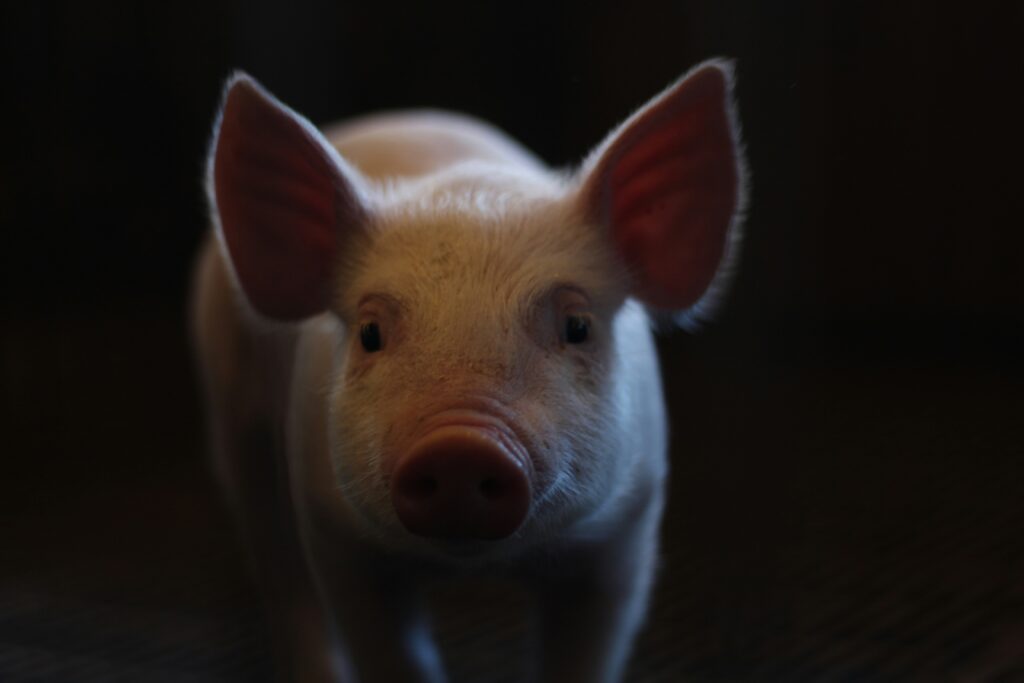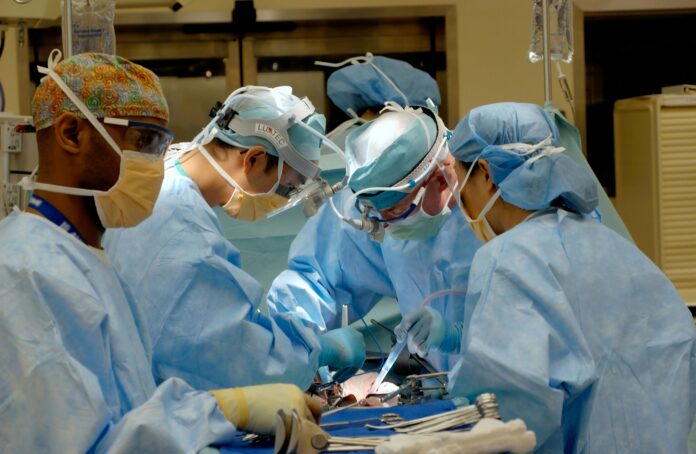In the scenic town of Weymouth, 62-year-old Richard (Rick) Slayman underwent a four-hour surgery on March 16th, receiving a kidney. He has been battling type 2 diabetes and high blood pressure, common causes of chronic kidney disease.
Slayman had previously received a human kidney transplant, but signs of failure appeared five years later, leading him back to dialysis and regular hospital visits to manage dialysis complications.
“A testament to years of dedication from countless scientists and physicians, this transplant marks a truly unique achievement.” We are fortunate to play a significant role in this milestone,” said Professor and Director Tatsuo Kawai of the Massachusetts General Hospital’s Center for Clinical Transplant Tolerance, who led the transplant team and performed Slayman’s first kidney transplant in 2018.
“With a unique transplant perspective, we aim to be a lifeline for millions worldwide battling kidney failure,” he added.
Addressing a crucial need
Researchers are exploring the transplantation of organs or tissues from other animals, known as xenotransplantation, as a solution to the shortage of donated organs worldwide. Recently, transplanting pig hearts into living patients and pig kidneys into brain-dead recipients has gained attention.
According to the United Network for Organ Sharing, over 100,000 people in the US are awaiting organ transplants, and 17 people die each day waiting for one. Literature published in the Journal of the American Society of Nephrology indicates that kidneys are the most needed organs.
Of the estimated 36 million Americans affected by chronic kidney disease, nearly 800,000 suffer from end-stage kidney disease or kidney failure, a terminal condition requiring either a new kidney or prolonged, painful dialysis sessions that filter waste from the blood multiple times a week, sometimes for hours at a time.
Transplanting organs safely from animals to humans requires several stages to reduce the risk of rejection by the recipient’s immune system – a concern with human organ transplants as well – and to prevent infections and other complications.
“Attempts at pig xenotransplantation have faced obstacles. The good news is we are capable of overcoming those obstacles,” said Professor Joren Madsen, the Paul S. Russell/Warner-Lambert Professor of Surgery at HMS and director of the MGHTC.
“If simplicity ruled, we’d have mastered it. But the challenge persists, beckoning us to rise above. Pig xenotransplantation presents unique challenges. The good news is we are capable of overcoming those challenges.”

Scientific Advancement
In the initial phase, genetic modification was involved in making pig organs more compatible with humans. The kidneys used in the new surgery were modified using CRISPR-Cas9 gene editing technology:
Some genes in pigs were removed that produce sugar with antibodies, which trigger our immune system response.
To improve kidney compatibility with humans, some human genes were added.
To eliminate the risk of infection in recipients, all viral elements present in the pig genome were deactivated, known as porcine endogenous retroviruses.
In total, there were 69 genomic edits in the kidney.
The modified kidneys were provided by Genesis, a xenotransplantation therapy company co-founded by HMS geneticist George Church and former HMS postdoctoral fellow Luhán Yang. Over the past five years, Mass General and Genesis have conducted extensive research, the results of which were published in Nature in October 2023. Patients also received new monoclonal antibody drugs designed specifically to suppress immune responses against pig tissues.
Medications were made available by two pharmaceutical companies at no cost.
Leonardo Riella, associate professor and medical director of transplantation surgery at HMS Herald and Ellen Danser Surgery, said, “This collaborative nature of education and industry is crucial for progress, which we are sharing today.”
Animals and resistant drugs were extensively tested in animal models to ensure that the team has developed an optimal protocol for application in humans.
Kidney “Turned Pink Immediately”
As soon as the surgical team—led by Real, Kawai, and Nahel Elias, assistant professor of surgery at HMS, interim chief of transplant surgery, and surgical director of kidney transplantation at Mass General—completed the kidney attachment, the new organ “turned pink immediately,” said HMS associate professor of medicine and nephrologist at Mass General, Winfred Williams.
He said, “It caught the urine and was producing urine.” “Applause broke out. It was quite a remarkable experience.”
According to the Mass General team, about a week after surgery, the patient, Mr. Sleman, is recovering well and is expected to be discharged soon.
Madison said, “Today the real hero is patient Mr. Sleman because without his courage and willingness to embark on this groundbreaking surgery, once considered unimaginable, the journey into the unknown in the medical field would not have been possible.”
Vigilant Optimism
The long-term implications of transplantation are still unclear.
“There are many unknowns,” said Riela. “This is the first time we’re doing something like this.”
According to General Maas F.A.Q., if the slum man doesn’t need to return to dialysis, the surgery will be considered successful. The team hopes that the pig’s kidney will improve the slum man’s health, perhaps buying him more time to acquire another donated human kidney.
“Kawai’s kidney longevity remains a mystery, but with a dash of optimism, he’s eyeing a distinctive two-year milestone, driven by intriguing preclinical discoveries.”
The slum man was approved for experimental procedures under the Expanded Access Protocol or EAP, often referred to as the compassionate use protocol. These are granted to groups of seriously ill or terminal patients when there are no comparable treatment options available.
Riela led the team in applying for EAP. FDA rigorously reviewed it before issuing approval at the end of February.
Understanding the efficacy of Porcine Kidney Transplantation requires not only more time but also more patience.
Williams emphasized the compassionate approach, describing it as a single-patient study. However, he stressed the importance of transitioning to a broader clinical trial for safety and effectiveness validation.
For instance, it might reveal that optimal results for pig organs require even more genetic editing.
Currently, there’s growing hope for kidney xenotransplantation to one day save lives and improve the quality of life by reducing the need for kidney dialysis.
“We hope dialysis will become obsolete,” said Riela. “We firmly believe xenotransplantation presents a viable option either as a bridge to human kidney transplantation or as a permanent solution in the future.”
He added, “In the MGCH alone, there are over 1,400 patients on the waiting list for kidney transplantation.” “Some of these patients may unfortunately die or become too ill for transplantation due to prolonged waits for dialysis. I’m confident xenotransplantation offers a promising solution to the crisis of organ shortage.”
Health Disparities
The team also aims to mitigate health disparities associated with xenotransplantation failure and transplantation.
Williams stressed, “Persistent racial gaps in kidney transplant access pose a significant challenge despite prior nationwide initiatives.” Let’s delve deeper into addressing this unique healthcare disparity.
He added, “The abundant supply of organs resulting from this technical advancement can ultimately help achieve health equity and provide the best solution for end-stage kidney failure – a well-functioning kidney – to all deserving patients.”
Williams commended the bravery of the slum man, who is Black, “for pioneering in the field of transplantation.”
When Williams and the transplant team proposed pig kidney transplantation to a man from the slums, detailing the procedure’s advantages and risks. They saw it not just as a personal aid but as a beacon of hope for many. “Transplantation for survival,” the slum man said in a statement.
Cost is another factor. Williams said the expense associated with slum man’s transplantation, as a first-of-its-kind procedure, is “substantial,” making it prohibitive for most patients; however, if the surgery becomes routine, the cost should decrease, he said.
History of Success:
General Mass Brigham’s history with organ transplantation is rich in innovation. Brigham and Women’s Hospital surgeons performed the first successful human organ transplantation – a kidney also – in 1954. Today’s MGCH transplant physicians and surgeons bring nearly 30 years of combined experience in xenotransplantation research.
Elias said the slum man’s team included physicians, surgeons, scientists, anesthesiologists, and nurses.
“Our physicians, researchers, and scientists are tirelessly committed to improving the lives of our transplant patients – present and future – and this dedication is at the heart and soul of academic medicine’s meaning and purpose,” said David F.M. Brown, Chair of Academic Medicine Centers at MGCH.
“We are immensely grateful to our hospital’s dedicated staff who aided in making this surgery successful and thank the patient for his bravery and courage,” he said.
- Chicago rapper Lil Durk implicated in alleged murder-for-hire scheme, court documents reveal

- Drake Hogestyn, ‘Days of our Lives’ veteran, dead from cancer a day before his birthday

- SNL kicks off with a star-studded cold open featuring Maya Rudolph as Kamala Harris and a return of Trump

- A mother of two, currently pregnant, feels utterly confined within her home in North Carolina.

- Caleb Williams Shines with Key Highlights in Stellar Preseason Debut for Bears





You made some really good points there. I looked on the internet for more info
about the issue and found most people will go along with
your views on this site.
My brother suggested I might like this web site. He was once totally right.
This put up actually made my day. You cann’t believe just how a lot time I had spent for this info!
Thank you!
Everyone loves what you guys tend to be up
too. This kind of clever work and reporting! Keep up the awesome works guys I’ve added you guys to my own blogroll.
What’s up, just wanted to say, I enjoyed this article.
It was inspiring. Keep on posting!
A person essentially lend a hand to make seriously articles I
might state. That is the very first time I frequented your website page and thus
far? I surprised with the research you made to make this actual submit amazing.
Wonderful task!
Fantastic beat ! I would like to apprentice whilst you amend your site,
how could i subscribe for a blog site? The account helped me a appropriate deal.
I have been a little bit acquainted of this your broadcast provided bright transparent concept
Aw, this was an exceptionally nice post. Taking the time and actual
effort to generate a good article… but what
can I say… I hesitate a whole lot and don’t manage to get
nearly anything done.
Good site you’ve got here.. It’s difficult to find quality
writing like yours these days. I truly appreciate individuals like you!
Take care!!
Have a look at my web site; phuket resorts thailand
It’s difficult to find experienced people for this subject, however, you sound like you know
what you’re talking about! Thanks
First off I would like to say terrific blog! I had a quick question which I’d like to ask if
you don’t mind. I was curious to know how you center yourself and clear your thoughts before writing.
I’ve had a difficult time clearing my thoughts in getting my ideas out there.
I do take pleasure in writing however it just seems like the first 10
to 15 minutes tend to be lost simply just trying to figure out how to begin. Any recommendations or hints?
Thanks!
Fantastic goods from you, man. I’ve understand your stuff prior to and you’re simply extremely wonderful.
I really like what you’ve got here, certainly like what you are stating and the
best way wherein you are saying it. You’re making it enjoyable and you continue to care for to keep it wise.
I can not wait to learn far more from you. This is really a terrific site.
Wow, this paragraph is pleasant, my sister is analyzing these things, thus I am going
to convey her.
Профессиональный сервисный центр по ремонту сотовых телефонов, смартфонов и мобильных устройств.
Мы предлагаем: сервисы по ремонту телефонов
Наши мастера оперативно устранят неисправности вашего устройства в сервисе или с выездом на дом!